Work
Water and Wastewater Solutions

Excel-based Water Treatment Tool
Smart Water Treatment Configurator
I’ve developed an Excel-based Smart Water Treatment Configurator that empowers users to bypass the traditional engineering design process to design a water treatment plant. By simply inputting a water analysis report, this innovative tool intelligently generates a customized water treatment plant configuration.
The intuitive interface accepts water characteristics and source type (surface water, groundwater, rainwater, etc.) as input. Leveraging this data, the tool recommends a multi-stage treatment array specifically tailored to address the identified contaminants. For each contaminant exceeding safe levels, the tool prescribes the most effective treatment unit. For instance, it suggests Activated Alumina Filters (AAS) if Arsenic is detected in the water sample beyond the permissible limit. The suggested treatment array strategically sequences units like sand filters, activated alumina filters, and cartridge filters to maximize contaminant removal efficiency. The proposed treatment array polishes water enough to meet the Potable water quality standards.
Furthermore, the tool calculates the optimal storage capacity based on the designated user population. To ensure complete financial transparency, it also estimates the operational cost of the water treatment plant, factoring in both daily electricity and chemical expenses.
Onsite Wastewater Treatment Plant Design
A ZLD Wastewater Treatment and Disposal System for 6,000 Sq Ft Home in Flood Zone Florida
This onsite wastewater treatment and disposal system catered to a 6,000 square foot, residence in flood zone in Florida. Recognizing the unique challenges presented by the shallow water table (a mere two feet below the surface during the wet season), the system prioritized ZLD approach.
The system employs a septic tank, pre-treatment, and advanced Nayadic treatment unit for the treatment of 600 GPD sewage. Conventional trench discharge system wasn’t feasible due to the high water table in wet seasons. To safeguard against potential contamination and ensure compliance with Florida’s stringent Administrative Code, tertiary treatment was used. Treated water was stored in underground storage tanks and concentrated byproducts were directed towards a constructed wetlands in the property’s backyard.
This ZLD wastewater treatment system not only ensures compliance with rigorous environmental regulations but also fosters self-sufficiency for this luxurious Florida estate, setting a precedent for sustainable living in a flood-prone region.
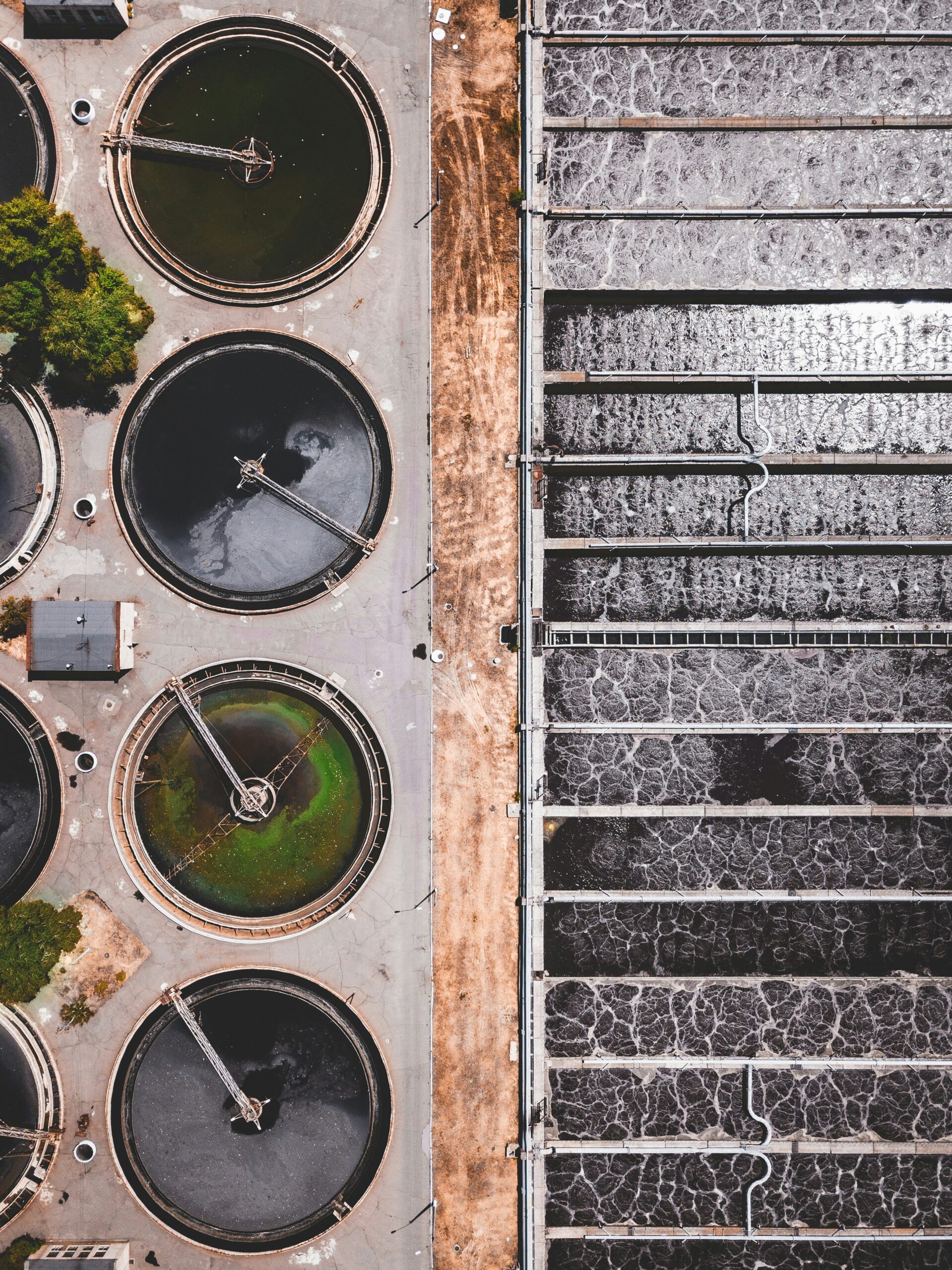

Water Treatment System
Basic and Detailed Engineering for Water Treatment Package
Designed a water treatment package with the deliverables as follows.
- Feasibility report covering possible treatment technologies and selection criteria
- Process flow diagram (PFD)
- Utilities flow diagrams
- Piping & Instrument Diagrams (P&IDs)
- Equipment list.
- Electrical Power Consumption details (Load list)
- Process Equipment Datasheets
- Piping General Arrangement Drawings (aboveground & underground drawings)
- Preliminary Plot plan / Equipment Layout of the proposed Wastewater treatment Technology/Unit
- CAPEX and OPEX
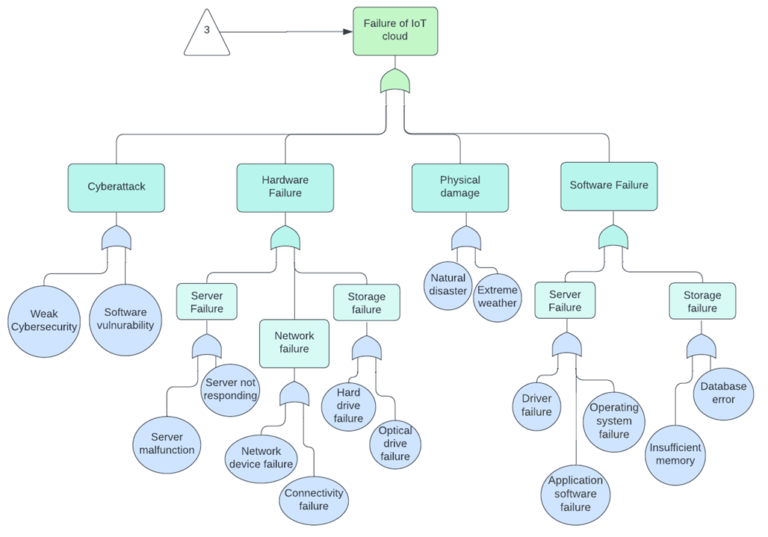
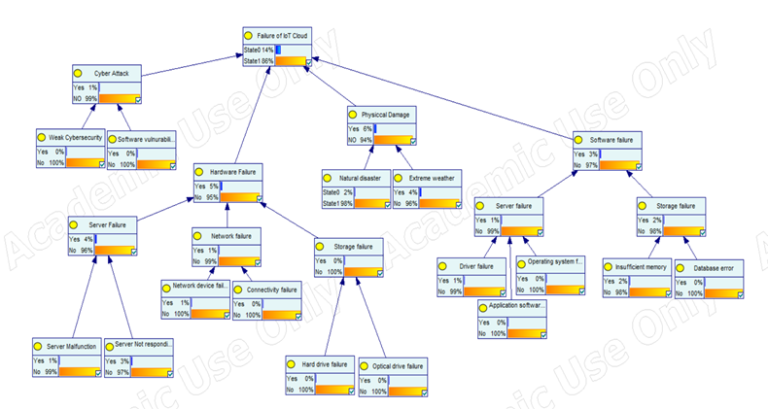
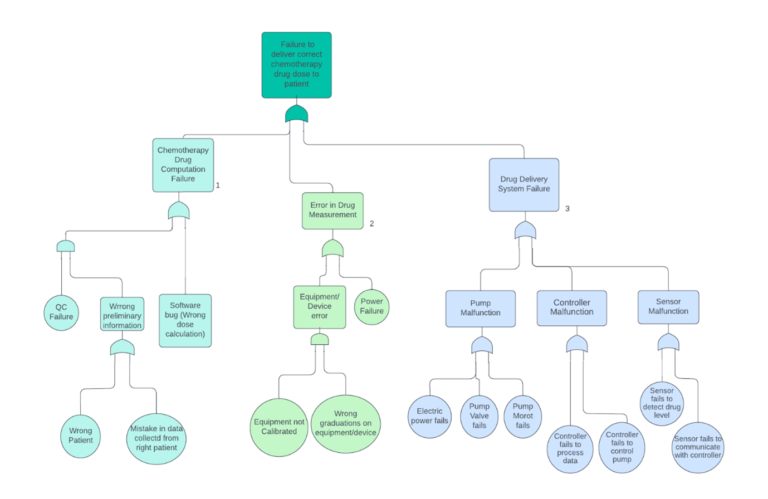
Application of Fault Tree Analysis and Bayesian Theorem on IoT based Chemotherapy Drug Delivery System
I prepared a report on “Failure Behavioral Analysis of Internet Of Things (IOT) healthcare systems and random hardware failures”. To identify possible basic events which can lead towards the failure of IoT-based healthcare systems (i.e. Chemotherapy Drug Delivery System), I conducted Fault Tree Analysis (FTA). The FTA helped identify the possible root causes behind the failure of system by identifying the intermediate and then basic events leading to a top event.
To evaluate the impact and probability of each basic event, I applied the the Bayesian theorem using a software called GeNie. I recreated fault trees, as Bayesian Network in the software and obtained values of probabilities by running a simulation. At last, I conducted the critical analysis using the BIM method. I used the Genie Network and Bayesian network to calculate the BIM value for each basic event and ranked the events based on their significance.
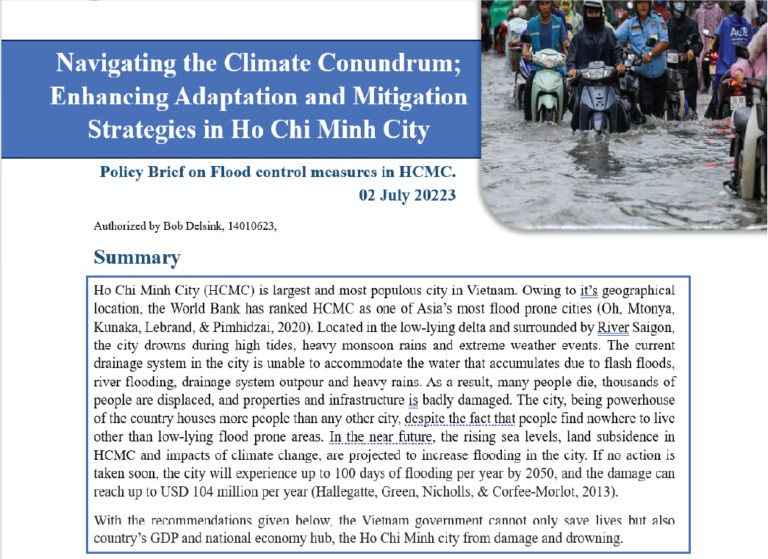
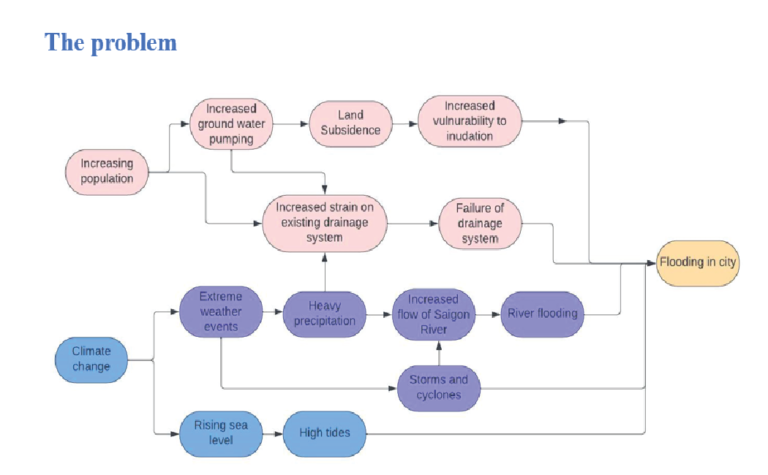
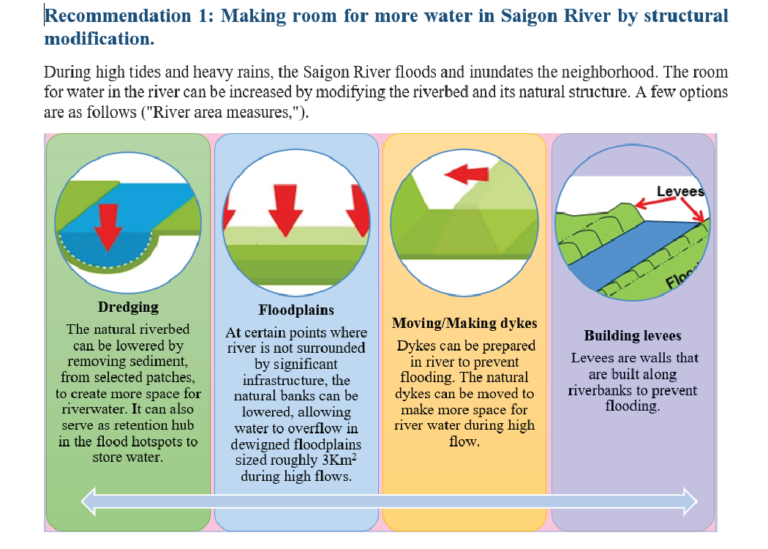
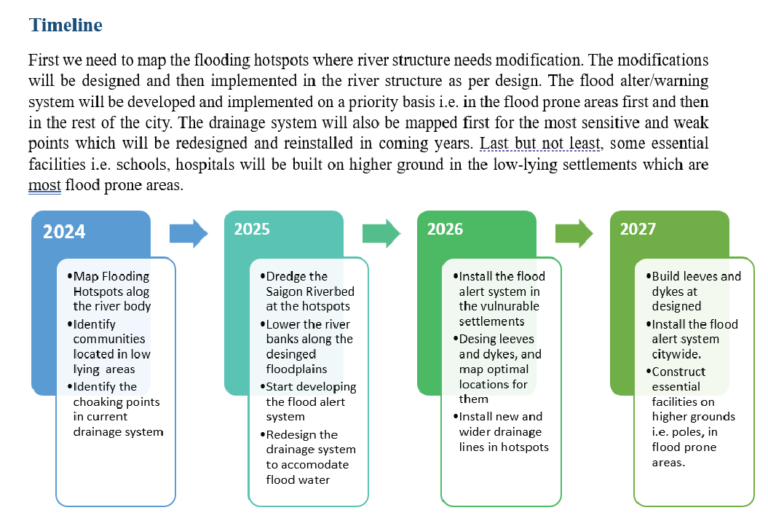
Policy Brief on Flood Control measures in HCMC
I’ve prepared a Policy Brief on Flood Control Measures in Vietnam titled “Navigating the Climate Conundrum; Enhancing Adaptation and Mitigation Strategies in Ho Chi Minh City.” This brief encompasses a summary, literature, background, a problem statement, problem flow chart, a summary of current policies, several recommendations, a timeline for implementing these recommendations, funding sources, stakeholders, and references.
The brief identifies the factors contributing to flooding in HCMC Vietnam, and proposes the adoption of promising policies such as modifying the bed and structure of the River Saigon, raising buildings and infrastructure, and widening the drainage system. The recommended policies are expected to make a difference in a relatively shorter span of time. The brief is concise and relevant, utilizing smart art, figures, tables, and flow charts to enhance its appeal. I’ve received positive feedback on this work.
Recent Projects

Marine Protection Policies
Navigating the Seas of Pollution: A Critical Analysis of Marine Regulations and Policies
In this report, I delved deep into the complex web of regulations and policies designed to safeguard our marine ecosystems from anthropogenic pollution. My objectives were clear:
- Analysis of Current Regulations: We examined regulations governing oil and solid waste disposal, plastic disposal, single-use plastics, air pollution, and land-based pollution contribution in marine environments. Notable frameworks such as MARPOL’s Annexes, MIPPRCA, and EPA’s Marine Debris Program were thoroughly analysed.
- Evaluation of Implementation: My assessment extended beyond the mere existence of regulations to their actual implementation. I scrutinized the effectiveness of 9 MoUs signed by the International Maritime Organization (IMO) in this regard.
- Identification of Improvement Areas: The culmination of my analysis led to insightful discussions on ways to enhance existing marine protection policies. I highlighted potential areas for refinement and strengthened enforcement.
Environmental Monitoring
Water, Soil and Air Monitoring Report
I prepare Environmental monitoring Reports which analyze basic air, water, and soil parameters, exploring potential sources and reasons behind them, and the relationships and interactions between these values, providing a picture of site’s environmental health.
- Analysis of Basic Parameters i.e. pH, Temp, Turbidity, Alkalinity, EC, DO, BOD, COD, DOC, TKN
- Possible reason/source of reported values
- Trends and relationship between parameters at different sampling points
- Analysis of Basic Parameters i.e. pH, EC, Soil Moisture, Soil Organic Matter, Soil Enzyme Activity, Heavy Metals, HM Enrichment and Soil Texture.
- Possible reason/source of reported values
- Trends and relationship between parameters at different sampling points
- Analysis of basic parameters i.e. NO2, CO, CO2, O3, SOx and Particulate Matter.
- Possible reason/source of reported values
- Trends and relationship between parameters at different sampling points.

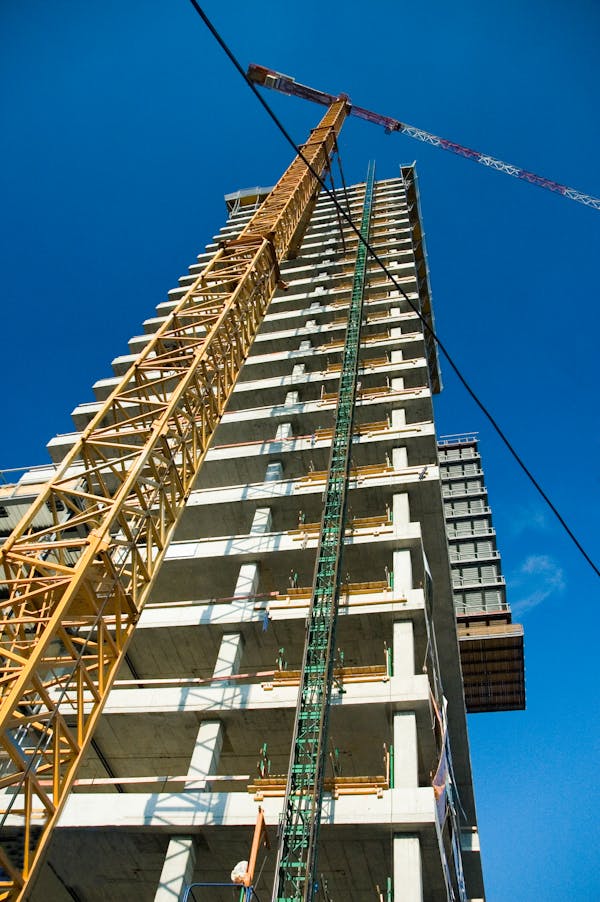
HSE Forms
HSE Documentation for Construction Company
I prepared company-specific HSE manuals and documents for a construction company. The documents included forms i.e.
- Incident Report Form
- Near-Miss Report Form
- Personal Protective Equipment (PPE) Inspection Form
- Weekly Inspection Form
- First Aid Log Sheet
- Electricity Inspection Form
- Fire Risk Assessment Checklist
I can prepare similar forms for you having open-ended, close-ended, qualitative and quantitative questions. Other than HSE forms, you can also order your field-specific Fire Safety Manual, Fire Risk Assessment Checklist, Emergency Exit Plan and much more.